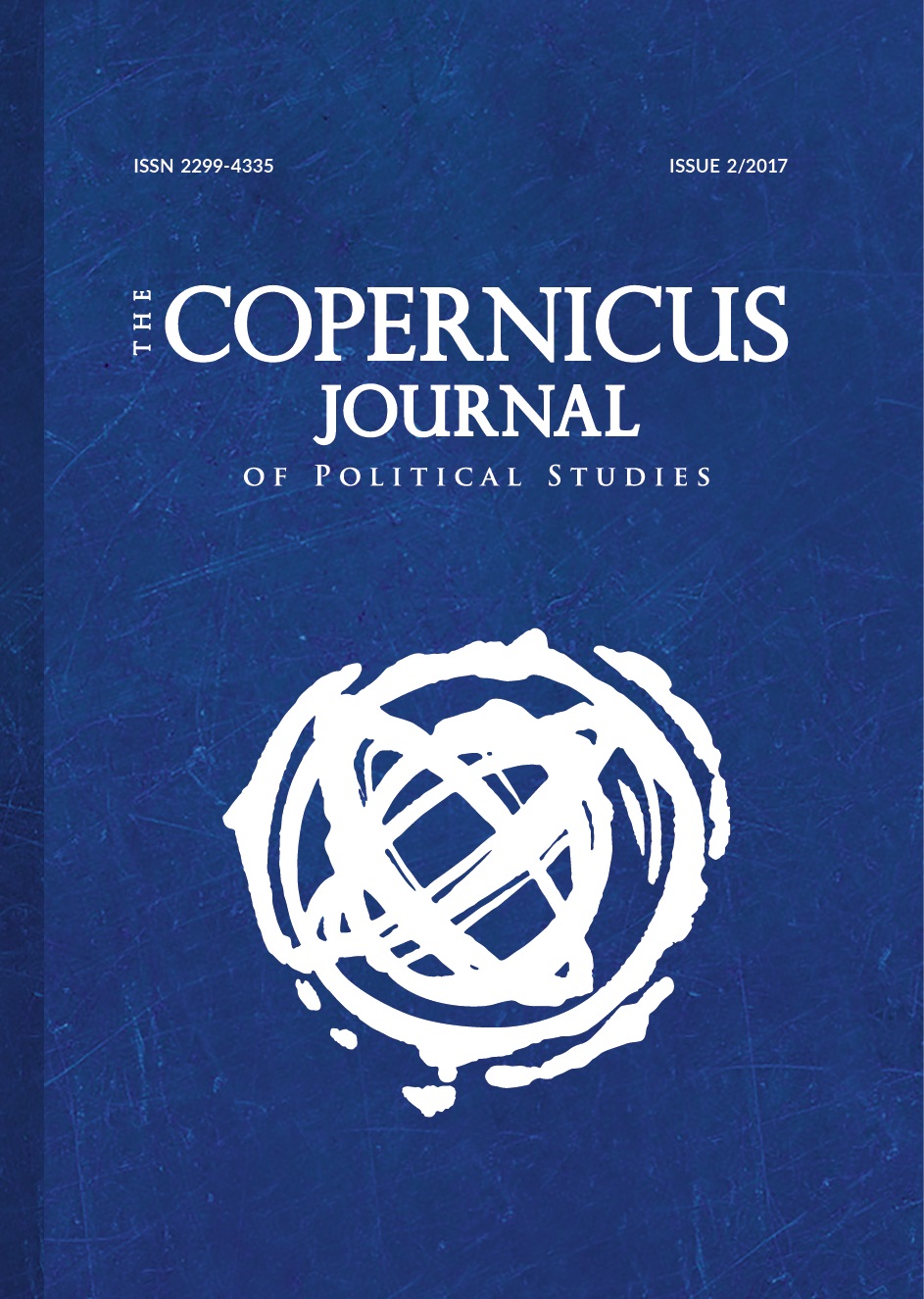THE EU’S EASTERN PARTNERSHIP IN THE SOUTH CAUCASUS: USING GEORGIA AS A MODEL TO UNDERSTAND REFORMS AND SECURITY CHALLENGES
DOI:
https://doi.org/10.12775/CJPS.2017.007Keywords
Eastern Partnership, Georgian reforms, South Caucasus, EU-Georgia relationsAbstract
The main goal of the Eastern Partnership (EaP) is political and economic stabilization of the region threatened both by its post-Soviet systemic predicaments such as weakness of state institutions, the gap between the ruling oligarchy and citizens and corruption, and by Russia’s attempts to maintain or extend its sphere of influence, which involves fomenting separatist tendencies of minorities and promoting anti-EU narratives. Among the six EaP countries, Georgia is most advanced in implementing reforms; however, there is still immense work to be done, despite the EU’s economic and technical support. Another aspect of the EU’s involvement in the region is the security dilemma whether to accept Russia’s influence in the former Soviet republics together with authoritarian models of governing or to make efforts towards democratization of those countries, risking the increase of Russian hostility, an example of which could be seen in 2014 conflict with Ukraine.
References
Bakhtadze, R. (2014). Policing Georgia: Perennial Need for Safety and Accountability. Expert Opinion. Georgian Foundation for Strategic and International Studies. Retrieved on January 11, 2015 from https://www.gfsis.org/files/library/opinion-papers/27-expert-opinion-eng.pdf
Cornell, S. (2013). Getting Georgia Right. Brussels: Centre for European Studies2013.
Fairbanks Jr, C. H. (2014). Georgian Democracy: Seizing or Losing the Chance? Journal of Democracy 25(1), 154-165.
Jones, S. F. (2014). Reflections on the Rose Revolution. In R. Fawn (ed.) Georgia: Revolution and War. London and New York: Routledge.
Kaca, E., Sobjak, A. & Zasztowt, K. (2014, April 15). Learning from Past Experiences: Ways to Improve EU Aid on Reforms in the Eastern Partnership. PISM Report. http://www.pism.pl/publications/Learning-from-Past-Experiences-Ways-to-Improve-EU-Aid-on-Reforms-in-the-Eastern-Partnership
Kaca, E., Parkes, R. & Sobják, A. (2014). Choosing our Geography: 12 Points to Restore Meaning to the Eastern Partnership. PISM Policy Paper, 12(95), pp. 2-3. Retrieved on January 11, 2015 from http://www.pism.pl/Publications/PISM-Policy-Paper-no-95
European Commission, Directorate General for Trade. (n.d.). European Union, Trade in goods with Georgia, http://trade.ec.europa.eu/doclib/docs/2006/september/tradoc_113383.pdf
Kosals, L. (2010, October 19). Police in Russia: Reform or Business Restructuring? Russian Analytical Digest 84. Retrieved on January 12, 2015 from http://www.css.ethz.ch/publications/pdfs/RAD-84.pdf
Papava, V. (2013). The Main Challenges of ‘Post-Rosy’ Georgia’s Economic Development. Expert Opinion. Georgian Foundation for Strategic and International Studies.
Susan E. Penksa, S. E. & Dojcanova, L. (2013). The Roles and Impact of EU and NATO Assistance in Post-Conflict Georgia. In M. Majer & R. Ondrejcsak (Eds.), Panorama of Global Security Environment 2013. Bratislava: Centre for European and North Atlantic Affairs.
Public attitudes in Georgia: Results of August 2014 survey carried out for NDI by CRRC-Georgia. (2014, August 8). Retrieved on September 14, 2014 from https://www.ndi.org/node/21850
Radziejowska, M. & Zasztowt, K. (2014, September 1). Georgia’s Dilemma: A “Thick Line” Policy or Accountability for the Sins of the Old Ruling Elite. PISM Bulletin 111(706). Retrieved on January 12, 2015 from http://www.pism.pl/publications/bulletin/no-111-706#
Zasztowt, K. (2014, June 23). Georgia in the Context of the Crisis in Ukraine: A Dangerous Curve on the Road to the European Union and NATO. PISM Bulletin 88(683). http://www.pism.pl/publications/bulletin/no-88-683
Downloads
Published
How to Cite
Issue
Section
Stats
Number of views and downloads: 366
Number of citations: 0



